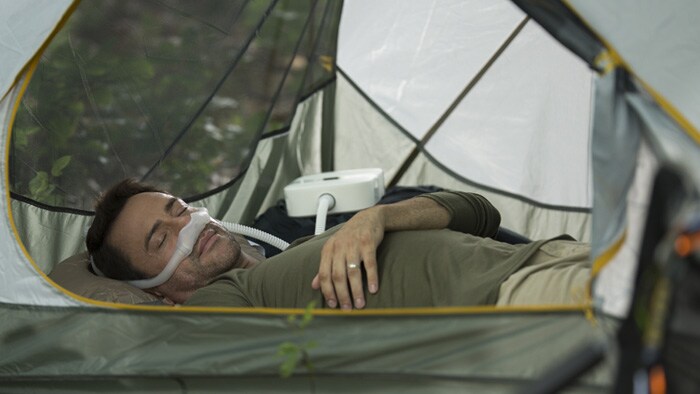What's the Best Sleep Position for OSA Sufferers?
If you're suffering from obstructive sleep apnea (OSA), your doctor may have recommended a few healthy lifestyle tips for mild OSA, and suggested sleeping modifications to try. One change you may have to make could be adjusting your sleep position. Even though you think your tried-and-true position has been serving you well for decades, your recent diagnosis may make now the right time to reconsider how you sleep.
Try this sleep position if you have OSA
Obstructive sleep apnea causes the airways to collapse during sleep, leading to pauses in your breathing, according to John Hopkins Medicine. People who have obstructive sleep apnea are often snorers as well. Oftentimes, sleeping on your back makes sleep apnea worse, according to research. That's because the tongue relaxes back further while lying on your back, causing even more of a breathing obstruction. Try to sleep on your side to help the airways stay open, reduce snoring and alleviate mild apnea, according to the experts at John Hopkins Medicine. Side sleeping has other benefits as well, from possibly reducing heartburn if you sleep on your left side, to helping your brain reduce waste while you sleep, aiding in digestion.
Make it work for you
To make side sleeping more comfortable, you might want to swap two pillows for one pillow that helps keep your head and neck in line with your spine while on your side. As you retrain your body to sleep on your side, you might want to place a pillow behind your back so you don't roll over during the night. You might also find it more comfortable to place a pillow between your legs. There are also devices you can wear at night to help you stay on your side when you sleep. Your physician may recommend a continuous positive airway pressure (CPAP) machine for your OSA. That can help keep the airways open while you sleep so you don't experience breathing interruptions that wake you. Look for a mask that allows you to have freedom of movement, and one that will work well while sleeping on your side. Changing your sleep position may take some time, but the solid sleep you'll be getting and improved health will make it worth it!


